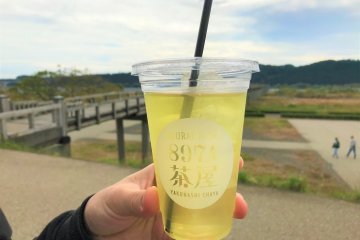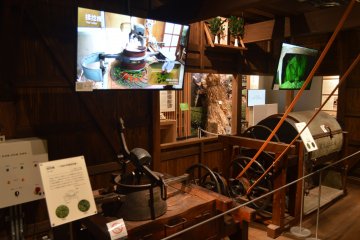Twenty-five minutes on foot from Shimada in the suburbs of Shizuoka City, Horai Bridge is a long wooden footbridge crossing the Oi River.
The bridge was completed during the Meiji era in January 1879; before then, those wanting to cross the river would have to hire laborers to take their luggage across. This was a dangerous endeavor, as the Oi River was often violent and would flood after heavy rain, so it was extremely hazardous to cross in boats.
However, the Tokugawa Clan, the feudal lords who ruled the area and who lived on the east bank of the river, relied on the river to protect them from invasion from the West. So, despite the danger to travelers, they did not permit a bridge to be erected across the river.
This changed when feudal domains were abolished in 1871, and the prefecture system of government was established. All feudal lords were required to return their domains to the Emperor, and the Tokugawa Clan began to cultivate tea fields in the area known as Makinohara.
Life became stable and people began to travel to Shimada to make purchases. As a consequence, local farmers requested that the prefecture construct a bridge across the river.
However, due to the river’s tendency to swell after heavy rains, the bridge was damaged multiple times due to flooding. As a result, in 1965 the bridge’s wooden supporting poles were replaced with concrete ones.
In 1997, Horai Bridge was recognized by the Guinness Book of Records as the world’s longest wooden pedestrian bridge. Since then, it has become increasingly popular as a tourist attraction.
Facts
Length: 897.422 meters
Width: 2.7 meters
Entry
Cost: Adults - 100 yen, Children Under 6 - 10 yen
Open: 8:30am to 5:00pm
The bridge is open to pedestrians and cyclists; motorized vehicles are prohibited.









